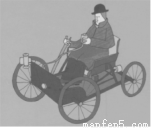题目内容
Centre,Inc.
JOB DETAILS
Job Title: Food Service Assistant
Hours Per Week: 20-24
Wage: $15.77
Job Type: Off-Campus Job
Work Type: Non work-study job
Position Description:
Centre,Inc.is hiring Food Service Assistant.
Details:
Gain experience that combines well with a Culinary Degree.Working hours include weekdays 3-7 pm and every other weekend 11 am-7 pm.Must be willing to work every other weekend and during some holidays.20-24 hours per week.$ 11-75 per hour+$ 4.02 per hour (see benefits),Total$15.77 per hour.
Duties:
Prepare and serve food to people of a community correctional facility(社区管教所).Work under the direction of the Dietary Manager.
Requirements:
Must be flexible,reliable,and energetic.Must pass a criminal background check,drug test,and physical test.
Apply:
Stop by and fill out an application at 123 15th Street N.Fargo,ND 58102 or e-mail your resume to alannawa@centreinc.org
Benefits:
Additional $ 4.02 per hour health and welfare benefit,paid vacation,pro-rated holiday pay,employee assistance programs and wellness program.
Centre,Inc.is an EEO/AAP employer and will recruit(招募),hire,train,and promote,into all job levels,the most qualified persons without regard to race,color,religion,gender identity,or national origin.
EMPLOYER DETAILS
Address: 123 15th St N
City/State: Fargo,ND
Phone: 701-373-8354
Email: alannawa@centreinc.org
Date Posted: 10-20-16 3:18:49 pm
Job Number: 20622
1.What field does this position belong to?
A. Food service. B. Education.
C. Medical care. D. Mass media.
2.How much will be paid if you work for 20 hours per week?
A. $ 282 B. $ 235
C. $ 315.4 D. $ 378.48
3.What will the company NOT do before employing a person?
A. Check criminal background B. Confirm family background
C. Examine physical health D. Hold a drug test
4.If you want to apply for this position,you can .
A. post your resume to the company B. send information via fax
C. call them at 701-373-8354 D. go to apply for it in person





